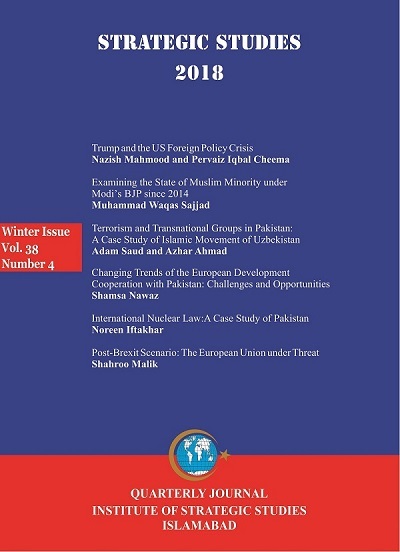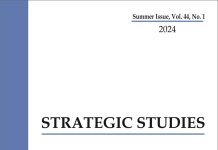Abstract
Pakistan has severely been affected by extremism and terrorism for a couple of decades. Much of this terrorism is an outcome of transnational terrorist groups, which are harbouring mostly in Afghanistan and Pakistan. 9/11 and the consequent global war on terrorism has put Pakistan at the forefront of global anti-terrorism efforts. In Afghanistan, the Operation Enduring Freedom (OEF) forced some of the transnational Islamists groups, including the Islamic Movement of Uzbekistan (IMU,) to take sanctuary in the Federally Administered Tribal Region (FATA) of Pakistan. In order to survive in a ‘foreign’ territory, the IMU joined its hands with local terrorist organisation, Tehreek-e-Taliban Pakistan (TTP). It carried out terrorists’ activities throughout Pakistan on the directives of TTP in exchange of sanctuary and finances. Nevertheless, it attacked some of the strategically most important targets in Pakistan. As a result of operation Zarb-e-Azb, the IMU has left Pakistan and is currently, stationed in Northern Afghanistan. Set in this context, the article would try to discuss the background, operational capabilities and activities of the IMU in Central Asia and particularly in Pakistan. It will also try to address the questions; what are the objectives of the IMU? What kind of terrorist activities it has conducted in Pakistan? And why has it been stationed in Pakistan? The research is historical, interpretive and analytical in nature. Both primary and secondary sources have been utilised to carry out this research.














